 Crime
Crime  Crime
Crime  Humans
Humans 10 Unsung Figures Behind Some of History’s Most Famous Journeys
 Animals
Animals 10 Species That Refused to Go Extinct
 Weird Stuff
Weird Stuff 10 Weird Things People Used to Do at New Year’s
 Our World
Our World 10 Archaeological Discoveries of 2025 That Refined History
 Weird Stuff
Weird Stuff 10 Fascinating Facts You Might Not Know About Snow
 Miscellaneous
Miscellaneous Top 10 Things Crypto Was Supposed to Change & What Actually Did
 History
History 10 Huge Historical Events That Happened on Christmas Eve
 Music
Music 10 Surprising Origin Stories of Your Favorite Holiday Songs
 History
History 10 Less Than Jolly Events That Occurred on December 25
 Crime
Crime 10 Dark Details of Australia’s Gruesome Unsolved Wanda Murders
 Humans
Humans 10 Unsung Figures Behind Some of History’s Most Famous Journeys
 Animals
Animals 10 Species That Refused to Go Extinct
Who's Behind Listverse?

Jamie Frater
Head Editor
Jamie founded Listverse due to an insatiable desire to share fascinating, obscure, and bizarre facts. He has been a guest speaker on numerous national radio and television stations and is a five time published author.
More About Us Weird Stuff
Weird Stuff 10 Weird Things People Used to Do at New Year’s
 Our World
Our World 10 Archaeological Discoveries of 2025 That Refined History
 Weird Stuff
Weird Stuff 10 Fascinating Facts You Might Not Know About Snow
 Miscellaneous
Miscellaneous Top 10 Things Crypto Was Supposed to Change & What Actually Did
 History
History 10 Huge Historical Events That Happened on Christmas Eve
 Music
Music 10 Surprising Origin Stories of Your Favorite Holiday Songs
 History
History 10 Less Than Jolly Events That Occurred on December 25
10 Things You Probably Don’t Know About The Lost City Of Atlantis
We’ve all heard of Atlantis, the legendary island that sank into the sea in a single day and night. But who came up with it, was Atlantis a real place, and is there more to the story than this? We get the story of Atlantis from the Greek philosopher Plato. Really, from two of his writings, Timaeus and Critias. The books date to around 360 BC.
In these writings, Plato wrote that the Greek sage Solon was given the story in Egypt by a priest. Upon his return, Solon shared the story with his relative Dropides. Then Dropides passed it down to his son Critias, who told his grandson, also named Critias, who finally shared it with the philosopher Socrates and others who were present.
This list should not be taken as historical fact but as a true account of what Plato wrote. Whether we decide to believe in the legend is our own choice, but we can probably agree that this might have been the first recorded game of telephone.
SEE ALSO: 10 Sunken Cities (That Are Not Atlantis)
10 We Know The Location
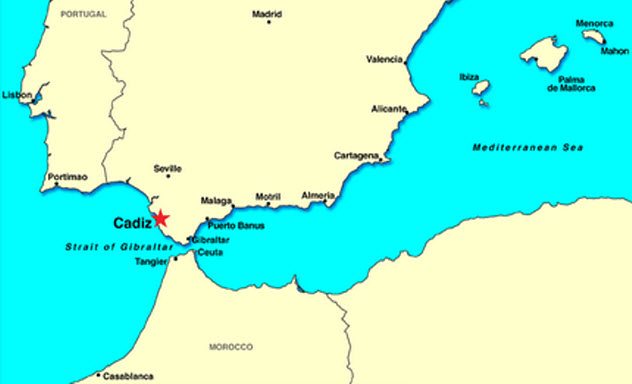
Many books and TV shows have been made about the possible location of Atlantis. A quick Google search will show that some people say Santorini is Atlantis, while others believe that the waters off Bimini are hiding a road to the lost city. However, if we look at Plato’s text, it tells us where the submerged island once stood.
The text reads that Atlantis “came forth out of the Atlantic Ocean.” It goes on to say that “there was an island situated in front of the straits which are by you [referring to ancient Greeks], called the Pillars of Heracles.”
Today, we call these the Straits of Gibraltar, where Spain and Africa are separated by a narrow strip of sea. While not quite GPS coordinates, this narrows the island’s location down from a tourist trap in the Bahamas.
In 2011, University of Hartford archaeologist Richard Freund and his team found “memorial cities,” or cities that were built in the image of Atlantis. The series of cities were found buried in the swamps of Donana National Park, just north of Cadiz, Spain.
As it turns out, Cadiz sits right outside the straits. This has Freund convinced that the real Atlantis was buried in the mud flats of the Atlantic. His findings match the story’s text that “the sea in those parts is impassable and impenetrable, because there is a shoal of mud in the way; and this was caused by the subsidence of the island.”
Cadiz is also said to be one of the oldest cities still standing in Western Europe. It is believed to have been built by the Phoenicians around 700 BC, but some records claim the city goes as far back as 1100 BC. Greek myth says that the city dates back even before this.
Why is this important? Long ago, the city’s name was Gades.[1] This is convenient since the text tells of an Atlantean prince called Gadeirus by the prehistoric citizens of Gades. He was given the far eastern side of Atlantis.
This part of the island would have faced modern-day Cadiz. That’s why the story says that Cadiz, or Gades, was named after the prince. Of course, Plato wrote all this at least 340 years after the city’s founding, so maybe he was being liberal when he was naming Atlantean princes.
9 Atlantis Was Named After A Demigod
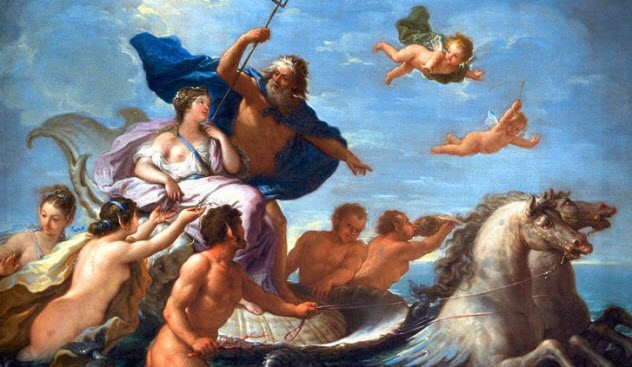
Most people probably believe that Atlantis got its name from being in the Atlantic Ocean, but the text claims that it is the other way around. As the story goes, Poseidon, the Greek god of the sea, had five pairs of male twins with a mortal Atlantean woman named Cleito.
The god gave each of his 10 sons different portions of the island over which to rule. Gadeirus was the second-eldest of these sons. While he may have had a city in Spain named after him, it was his older twin, Atlas, who would have the glory of being the island’s namesake.
As the firstborn, Atlas had the entire island, and even the surrounding ocean, named after him.[2] His children would also reign over Atlantis forever. (Talk about picking favorites.)
8 Half The Story Is Missing
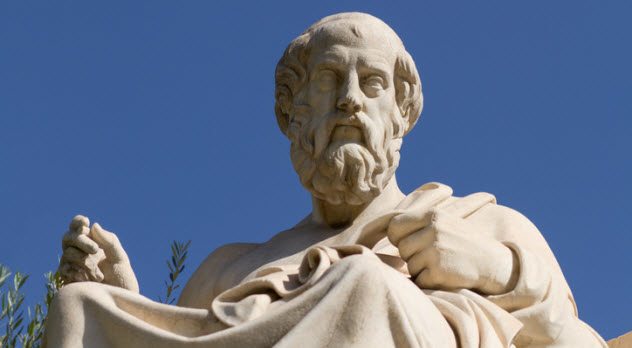
We know that Plato wrote at least two books about Atlantis. Today, we have a complete version of Timaeus, but we do not have a completed copy of Critias.
Critias ends after Zeus, head of the Greek gods, “collected all the gods into their most holy habitation, which, being placed in the center of the world, beholds all created things. And when he had called them together, he spake as follows.” It ends there. Talk about a cliffhanger.
It is not known if Plato left the book incomplete on purpose or if the finished version was lost long ago. Not only are we missing the ending of Critias, but it is thought that Plato wrote, or at least planned to write, a third book on Atlantis called Hermocrates.
There are a couple of facts to support this theory. A line in Critias reads, “Critias, we will grant your request, and we will grant the same by anticipation to Hermocrates, as well as to you and Timaeus.” This suggests that a third account of the story was to be given by Hermocrates.[3]
Also, the names of the three books may contain a hidden message, especially when one looks at the order in which Plato wrote, or would have written, them. Timaeus comes from the Greek tio, meaning “to honor.” Critias comes from the Greek krima, meaning “judgment.”
Lastly, Hermocrates is derived from “Hermes,” the messenger of the Greek gods. Timaeus honors prehistoric Athens for its heroism. Critias presumably ends with Zeus’s judgment of Atlantis. But what message might Hermocrates have delivered?
The answer may lie in what we know about Hermocrates himself. He was a real-life military leader who helped to lead the successful defense of Syracuse against Athens during the Peloponnesian War. This is much like the story of Atlantis. In the story, an Athenian state from archaic times repels an attack from the superior force of Atlantis.
Maybe the message in Hermocrates would have touched on why Athens’ attack on Syracuse failed and how Syracuse was able to defend itself from conquest. Unless someone finds a copy of this book, we may never know the whole story of Atlantis.
7 Atlantis Would Be At Least 11,500 Years Old
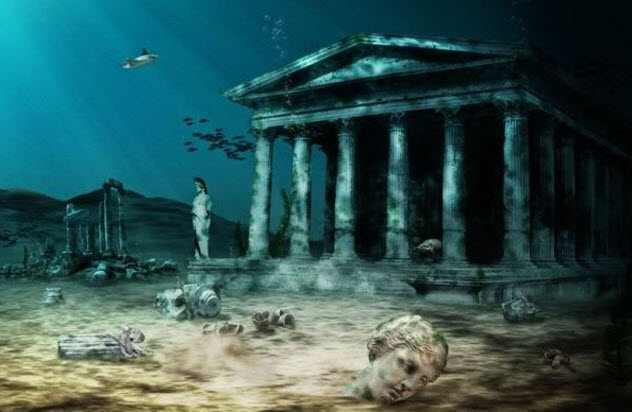
Solon was said to be the wisest of all Greek sages. The text states that the story of Atlantis was handed down to Solon in Egypt when he wanted to “draw” one of the priests to speak about their oldest of tales.
To do this, Solon decided to tell the priests about the oldest Greek stories he could recall. He spoke to them about a great flood and about the first man. After listening to Solon, one priest responded, “O Solon, Solon . . . there is not an old man among you . . . in mind you are all young; there is no old opinion handed down among you by ancient tradition.”
The priest went on to say that Athens, Solon’s home city, was much older than he thought it was. In the Egyptian registers at Sais [where they were], it was written that Sais was founded 8,000 years before their own time. It was also recorded there that Athens was founded 1,000 years before Sais and that the Athenians of this time fought off Atlantis.
Solon lived from roughly 630 BC to about 560 BC.[4] If the story is true, then the fall of Atlantis occurred around 9500 BC. This would make Atlantis about as old as Gobekli Tepe, which is dated to around 10,000 BC and is considered to be the world’s first temple by archaeologists today.
This would flip history on its head. But for now, it will have to remain on its feet.
6 The Story Is True . . . According To Plato

We said that no one should take this list as a historical account. In the text, however, Critias claims that his story is true. “Then listen . . . to a tale which, though strange, is certainly true, having been attested by Solon.” To which Socrates responds, “Very good. And what is this ancient famous action of the Athenians, which Critias declared, on the authority of Solon, to be not a mere legend, but an actual fact?”
It is important to note that Plato discerns fact from fiction in his story. “There is a story . . . that once upon a time, Paethon, the son of Helios, having yoked the steeds in his father’s chariot, because he was not able to drive them in the path of his father, burned up all that was upon the Earth, and was himself destroyed by a thunderbolt. Now this has the form of a myth, but really signifies a declination of the bodies moving in the heavens around the Earth.”[5]
Here, Plato acknowledges that some myths are symbolic in nature. However, he states in his book that Atlantis was real, not a myth. If Atlantis was Plato’s fantasy, why would he assert that the story of Atlantis was true but have no problem saying that a Greek myth was created to represent something else?
Did Plato believe his own story? Did he want his readers to think it was true? Maybe he was trying to throw his readers off the trail of a message hidden deep within the story. That would be some seriously ancient reverse psychology at work.
SEE ALSO: 10 Legendary Lost Cities That Have Actually Been Found
5 Atlantis Was An Empire
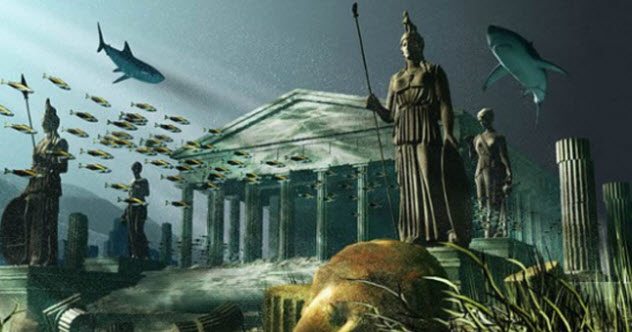
Most of us probably think of a lush green island surrounded by deep blue ocean waters when we picture Atlantis. While the story focuses on the island, most of us probably assumed that Atlantis was no more than this. But Plato tells us that Atlantis was actually an empire ruled from this island.
“Now in this island of Atlantis, there was a great and wonderful empire which had rule over the whole island and several others, and over parts of the continent, and, furthermore, the men of Atlantis had subjected the parts of Libya within the columns of Heracles as far as Egypt, and of Europe as far as Tyrrhenia.”
Tyrrhenia is another name for Etruria, now known as central Italy.[6] This means that Atlantis would have stretched as far as modern-day Tuscany in Europe and all the way to Egypt in Africa. We wish we knew how Athens beat such a big empire? Maybe Plato had no idea either, so he gave up on writing the ending.
4 Ancient Mediterranean People May Have Known About The Americas
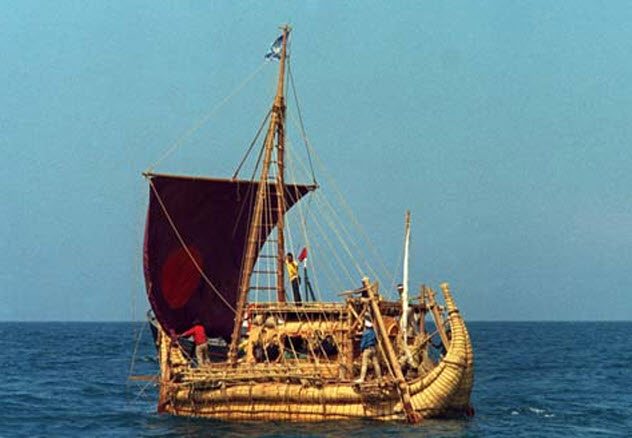
While it is possible that Plato made up Atlantis for philosophy’s sake, there is one part of the story that would have been very hard to fabricate. In the story, the Egyptian priest tells Solon, “The island . . . was the way to other islands, and from these you might pass to the whole of the opposite continent which surrounded the true ocean. [ . . . ] The surrounding land may be most truly called a boundless continent.”
So there was a continent on the other side of the Atlantic that was so big that it seemed to surround the entire ocean. Could this mean that ancient Greeks, and possibly ancient Egyptians, knew about or had even been to the Americas?
In 1970, famous seafarer Thor Heyerdahl set sail with a crew of six in a reed ship named the Ra II. They sailed from Safi, Morocco, across the Atlantic, and to Barbados in 57 days.
The voyage proved that reed boats could survive ocean travel and that ancient people could actually cross the Atlantic in them. This feat had once been thought impossible by scholars. However, this does not prove that Egyptians, or Greeks for that matter, made it to the Americas. But Heyerdahl proved that it was at least possible for them to do so.[7]
3 Women Were Allowed To Serve In Prehistoric Athens
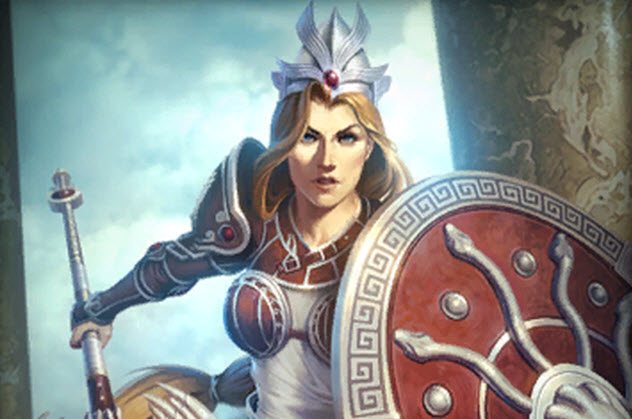
Every so often in America, the issue of women in the military comes up. Should we allow women to serve in combat positions? Should we make women sign up for the draft? Although we seriously consider these questions today, they would have been laughable to Greeks 2,500 years ago. In fact, it was Plato’s student, Aristotle, who once said, “Silence is a woman’s glory.”
And could you imagine what the Spartan warriors would have done if a woman had tried to join their ranks? We hope you ladies like being kicked into deep pits by Spartan kings with spray-on abs.[8] Seriously, they would not have liked this.
However, this was not the case with the Athenians of 9500 BC, at least not in Plato’s story. The text reads, “Military pursuits were then common to men and women, the men of those days in accordance with the custom of the time set up a figure and image of the goddess [Athena] in full armor, to be a testimony that all animals which associate together, male as well as female, may, if they please, practice in common the virtue which belongs to them without distinction of sex.”
2 Plato May Have Wanted To Keep People Out Of The Ocean
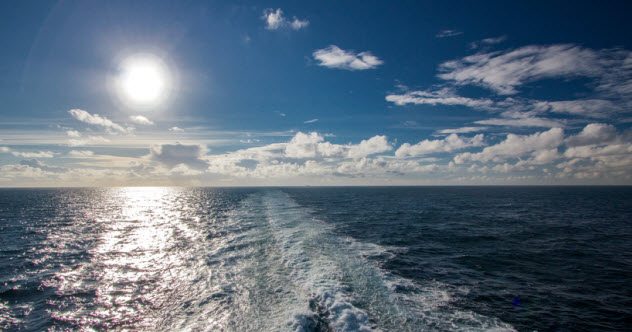
If the Greeks did know what lay beyond the Mediterranean, would they have wanted other people to know as well? Maybe not, and this might have been why Plato wrote that no one could sail into the Atlantic.
“But afterward there occurred violent earthquakes and floods; and in a single day and night of misfortune all your warlike men in a body sank into the Earth, and the island of Atlantis in like manner disappeared in the depths of the sea.” According to Plato, this caused an impassable mud shoal outside the Straits of Gibraltar.
This may have stopped some from going too far beyond the straits. Plato implied that the Atlantic was not able to be sailed into during his lifetime when he wrote, “For in those days the Atlantic was navigable.”[9]
Was Plato trying to keep people from going into the Atlantic? Did he truly believe that a shoal of mud was blocking ocean travel? Or was the Atlantic really too muddy for boats to sail across at one point? If it was too shallow for boats, why wouldn’t they just walk across?
1 The Many Times Mankind Has Been And Will Be Destroyed

The Egyptian priest had told Solon that none of his stories were “truly ancient” compared to his own. According to the priest, the reason for Solon’s lack of “truly ancient” knowledge is that mankind has been destroyed time and time again.
“There have been, and will be again, many destructions of mankind arising out of many causes; the greatest have been brought about by the agencies of fire and water, and other lesser ones by innumerable other causes.”
The priest explains further, “When, on the other hand, the gods purge the Earth with a deluge of water, the survivors in your country are herdsmen and shepherds who dwell on the mountains.”[10]
If the only people to survive were mountain dwellers who had no knowledge of their distant past, then it is easy to see how an entire civilization’s history would be lost in time. The priest believes that Egypt survived these disasters when almost no one else did because Egypt received very little, if any, rain.
Instead, they received annual floods from the Nile River which raised enough to provide for them but not enough to destroy their world. Some places are too wet, and some too dry. But Egypt is just right, baby. Just kidding, it is really, really dry.
I do a little bit of this, but I refuse to do any of that. Just kidding, I’m all about doing it. Really, I’m just a part-time lifeguard trying to make ends meet. Freelancing is how I hope to fill the space between said ends. Enjoy my work and want a piece of it? Send me a direct order over at textbroker.com. (I told them my name was T. Durden, so be supercool and don’t blow my cover. Thanks).
Read about more lost civilizations on Top 10 Legendary Lost Worlds and Top 10 Lost Cities.








